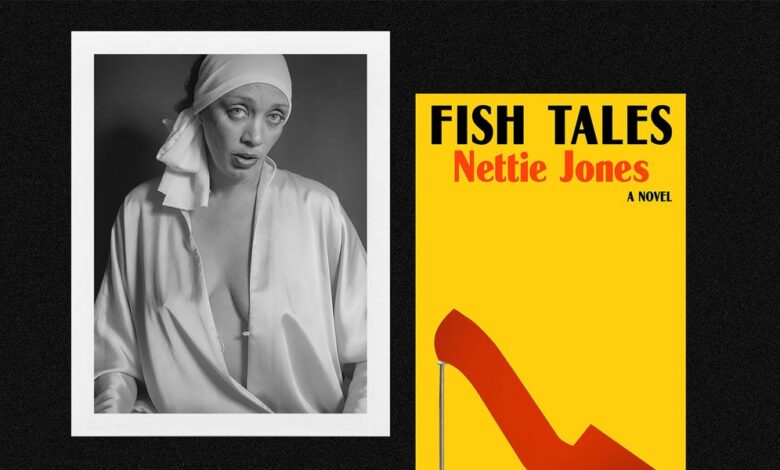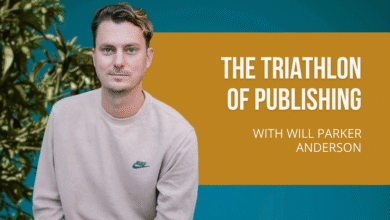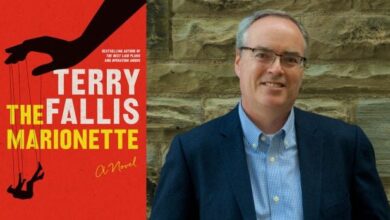Nettie Jones Wrote the Best Novel About Sex

“I was dancing on the edge of the floor with this little olive girl,” says Lewis, the heroine of the 1984 novel Fish Tales. “She was focused on my mouth, smiling, snaking her hips to the music. … I must have looked like a version of those Midwestern businessmen having a night out on the town. … All around me dancers were writhing to the beat, lost in the music. Boys danced with boys, boys danced with girls, girls danced with anyone. It was rumored that Diana and Liza had been there earlier. Their electricity remained.”
This fabulous description of a night out at Studio 54 in its heyday is just one of the many delicious tableaus in Nettie Jones’s novel. Published to acclaim in the ’80s and famously edited by Toni Morrison, the book fell out of print but was republished this spring to great fanfare. When Fish Tales first appeared on the literary scene, it was in the midst of a literary boom of Black women writers like Morrison, Toni Cade Bambara, and Gayle Jones, who was Jones’s mentor. Those women wrote novels that continue to influence literature today, but their work often curtailed the pleasures of sex, of erotica, of laziness, of living luxuriously.
Fish Tales reads different. It follows Lewis, a woman drawn to men, women, and anyone in between, on her rambles through bohemian circles in Michigan and New York City. The writing is precise and nimble, with some of the best descriptions of sex ever put to the page. Lewis’s life is full of broken champagne glasses and meeting hot strangers at bars. But what’s remarkable for the time, and even today, is that Lewis isn’t necessarily punished for being a Black woman who enjoys a good time, as often happens to hedonists in literary novels. Instead, the book reads like a hipper version of Robert Altman’s 3 Women or a femme version of a Charles Burnett film. That is to say, a great hang-out read. You can trace Fish Tales descendants in the work of writers working today, like Raven Leilani, Angela Flournoy, and Deesha Philyaw.
Nettie Jones herself is a remarkable woman who drew on many of her own life experiences to write the novel. With the re-issue, a new generation discovered this witty, charismatic author. Below, Harper’s Bazaar spoke with Jones about her life and the writing of Fish Tales.
Harper’s Bazaar: What drew you to becoming a writer?
Nettie Jones: Because everything else that I was disappeared.
HBZ: What do you mean?
NJ: My marriage. What can I say when I say it disappeared? I found that coming back and forth, from New York City to my home in northern Michigan, where I had written quite a bit of those books … it’s complicated. I had left working in secondary education at the time because I didn’t have to work at anything because I was being fully supported by my ex-husband, who became my patron. That setting that Frank provided me with, it was paradise. It was a place of absolute beauty. My house was set on a field of wildflowers. I could walk to Lake Michigan, about a half a mile away maybe, and exercise my dogs, two Dobermans named Dick and Jane.
There were other writers there, like Jim Harrison. His personal assistant would go on to help when I worked on my second novel, Mischief Makers. There were restaurants, and the sky was clear. You could see the sky; you could hear the birds and you could see them. It was the excitement of living among wild animals.
I ran into someone one day when I was running back and forth, between Michigan and New York, who asked me a basic question: “What do you do now?” I was fucking stumped for a minute. And so I said, “I’m writing a book.” And he said, “You want to write a book, or you want to be a writer?” That is where the idea came from.
HBZ: When you were writing Fish Tales, did you think of it as a memoir? As a piece of fiction? Or a blend between the two?
NJ: I’ve been writing, of course, since I entered school. So, finally, the times caught up to me. I wasn’t into classifying and therefore limiting what I was doing. I rebel greatly against that. What I did was I took my experiences; some of them are quite dramatic. Then I snatched the body of someone and put in my thoughts. By snatching the body, I was creating another person, which is something I think that writers do if you’re smart. When I was teaching writing, I always taught my students to snatch a body.
That’s what I did. I used what I knew best and what I knew best was men.
HBZ: Who were your influences?
NJ: Donald Goines, for one. Because I’m from Detroit and he was a Detroiter, and so I read— his first book I read was Dopefiend, a book that I will never read again because it’s that realistic. It’s because of the way it is structurally, the realism.
I would never say that he was the only one, but I can’t say that successful, very successful writers influenced me because, you see, my life wasn’t about writing so much as it was about living. And that by living, I was able to write alive. It seems as if I have the talent to know, or the instinct to know, that if I’m going to be influenced, it’s not necessarily going to be by someone else’s story.
Gayl Jones was my mentor. She did not try to direct me, because she knew from when I first met her and from what I gave her that I was truly a writer, and not a beginning one. She never tried to interfere with my flow. I consider her to be my first reader.
One time when I had written something … I was calling my genitals, like, “nanny babies.” I kept giving it another name, and finally I said it. I said “pussy.” She said, “Right. Say it as it comes.” That’s what takes the nerve, I guess.
Fish Tales came to me as a film script. You see, right? All it needed was the music. It came straight to my head from beyond. We didn’t say the Great Spirit, or whatever it is, then, but it was like I was taking it down. I have so many drafts of each part of that book. I have just been looking at some of them, including the ones that my editor, Toni Morrison, suggested were too raw and too raunchy, so I should get rid of them. So the published ending of Fish Tales is what I did that I thought was needed. Looking at it now, I wish that I had been in a position to be sterner.
HBZ: I have a question about writing scenes that Morrison deemed too “raunchy.” So many writers I know are afraid, initially, to write about sex—
NJ: I had insufficient funds. I was not bringing in anything from my patron, Frank Harris. I had Frank and I had my daughter to consider. I was trying to be reciprocal. We were kind of shocked when Fish Tales flew high and then suddenly it just landed. All I can say is my need to be of use to my family and to society took away any fear of writing, it appears.
The way I told you it appeared is for real. So am I a mystic? Or was I just desperate for some money? Well, I go with the “desperate for some money.” Right? But mystic is so much more romantic, isn’t it?
Writers don’t like to talk about this. It is like a sin or taboo to talk about the fact that you could use your sanity and insanity to create reality.
I didn’t know a lot about myself until I saw it in writing. I said, “Damn, you are such a loose woman.” I really used the word slut. But I said, “You are really promiscuous. You are.” And then I said, “You are an adventurer. And you are not committing adultery because your patron who used to be your legal husband just became your very best friend.”
We were so close. I was with him when he was dying. I was there because he wanted me there. I was there with a woman he’d been with for 20 years. She said to me, “You and Frank are really different.”
I don’t know if I’m not clear. Just ask me. Go deeper.
HBZ: Why do you think so many Black women writers, in particular, don’t often write directly about sex?
NJ: Well, remember, there’s only been a short time between when we were ashamed of being pregnant. It was not a word that was used. The thought of getting rid of the baby or cleaning your kitchen, or whatever they called it, was not to be discussed. Those were powerful, secret secrets. But you see, I’m not saying that they should all wish to write about sex. I’m just saying that we do seem to be ashamed of our bodies. The real statement is we are ashamed of our bodies.
[In the 1980s] I learned Swedish massage. So many Black women are even ashamed of our mouths. You see how we can be smiling and put our heads up to our mouth just if we’re hiding a bunch of really bad-looking teeth? I was 35 or 40 or something like that before I even knew what between my legs looked like. We don’t even look. For some reason, Black women … Maybe it’s because of slavery. Everything goes back to slavery.
But I can have the freedom to just say it. And they must understand whether it makes meaning or not.
HBZ: I wanted to circle back to learning things about yourself when writing this.
NJ: A lot of people, they cannot do that because they don’t know anything about themselves, or at least they don’t know enough about themselves that they are going to tell secrets.
HBZ: While I was reading your book, I was struck by an understanding of sexuality that feels so much more open than our current moment.
NJ: Well, it was more open back then. But it isn’t anymore.
HBZ: Right. Now, people are so interested in labeling sexuality in a way that this book is utterly unconcerned with.
NJ: Yeah. They do have a lot of courses on it. For me, I think that a lot of my daring through those years is because I drank a whole lot of alcohol. Now, that’ll free you up. As will weed, which I smoke every day.
I have not drank alcohol in 20, 25 years, but I smoke cannabis. When you don’t drink anymore, you’re not as courageous. I said that some of my best writing came about when I was loaded. I’m not encouraging it, but as I say, sober life is different. You are able to listen instead of just act stuff out.
I tell people, your blood pressure is high: some weed. I was first prescribed it by a practicing psychologist. At least for me, my blood pressure can go from very high to reasonable. One of the actions that can happen when I’m out there, when I am calm, is that one of my main characters came and sat on my bed. She was not like you and I look. It was more of a feeling. But it was like I could fully see her.
HBZ: Was this for Fish Tales? Or your second novel, Mischief Makers?
NJ: For Mischief Makers. Which I hope is reprinted. But, hey, did I tell you the good news? I’ve gotten international [publishing for Fish Tales].
It’s been a very privileged life, in some ways. I love to be studied, you know. I brought James Baldwin to speak in Detroit, met Charles Johnson. … But don’t let me go on tangents.
HBZ: I love the tangents. I could listen to them all day.
Source link




